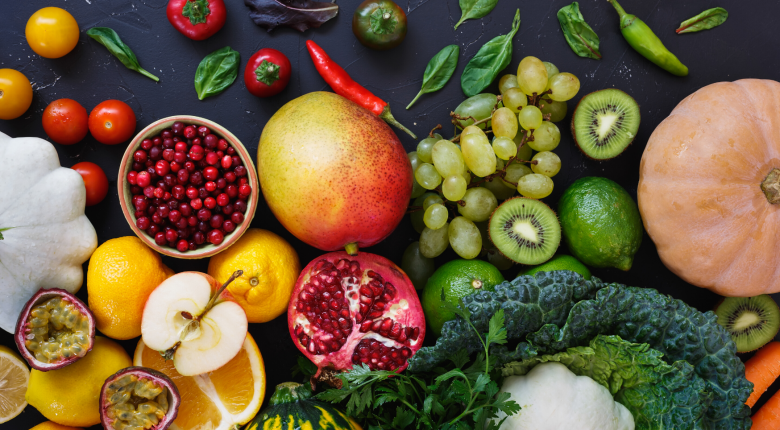
Beautiful: a large bowl of different types of fruit brings colour into the kitchen. Vegetables, too, often lie next to each other in the kitchen or refrigerator to save space. But this can be a mistake! Some fruit and vegetables influence each other’s shelf life. In addition, some types of fruit and vegetables feel happier in the fridge and will keep fresher longer if stored there.
Fruit and vegetables not only differ in taste, ingredients and growing conditions but also have different storage requirements. Some fruit and vegetables emit a gaseous substance called ethylene or ethene. Ethylene is also known as a ripening hormone and ensures that the varieties concerned continue to ripen even after harvesting. However, the ripening process is also stimulated in fruit and vegetables in their vicinity. As a result, already-ripe varieties spoil quickly. The solution: distance or cool temperatures.
Which of these fresh goodies are the ethylene-producing varieties that continue to ripen? Stone fruits, bananas, some exotic fruits and tomatoes are included. Examples of fruit that do not continue to ripen are pineapples, berries, citrus fruits, grapes, cherries and most types of vegetables. Cucumbers, lettuce, carrots, celery, asparagus, cabbage, kitchen herbs and mushrooms are particularly sensitive to the ripening hormone. This means that each type of fruit and vegetable has its own requirements regarding its storage location and suitable neighbours. Your rewards for correct storage will be long freshness and a full flavour!
Off to the fridge: stop the ripening process by cooling
The fridge is a real hero. It inhibits the growth of germs and slows down metabolic processes in fruit and vegetables, and therefore also the ripening process caused by ethylene. This slows down spoilage. In addition, the cool temperatures protect vitamins and aromas. With combined moisture regulation, such as the Fruit & Vegetable Safe in your Liebherr refrigerator, fruit and vegetables stay fresh and crisp for a particularly long time. Plastic bags to protect against dehydration are therefore unnecessary. However, the refrigerator is not the best place for every type of fruit and veg.
Cold-sensitive
The very cold-sensitive foods include bananas, mangos, aubergines and pumpkins. These should be stored in the cellar or in the pantry. Storage in a fridge with a cellar compartment is also ideal. Not every fridge temperature is ideal for potatoes, either. For some varieties, a compromise between room temperature and refrigerator is ideal. For example, ripe pears, apples, kiwi fruit, nectarines, peaches and plums will be happy to be stored in the BioFresh Fruit & Vegetable-Safe and avocados will be happy to be stored in the fridge. Very firm, unripe specimens, on the other hand, may continue to ripen at room temperature until reaching the desired firmness before putting them in the fridge. All other varieties such as berries, apricots, cherries, grapes, green leafy vegetables and cabbage, lettuce, leek and spring onions, asparagus, carrots, beetroot, celery, radishes, peas, corn and mushrooms, as well as herbs, are always better off in the BioFresh Fruit & Vegetable-Safe.